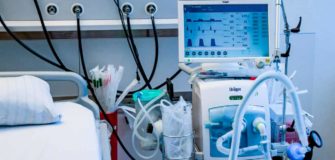Coronavirus: How we can support older Australians today
Share
People aged 70 years and over, people aged 65 years and over with chronic medical conditions, people with compromised immune systems, and Aboriginal and Torres Strait Islander people over the age of 50, are at greater risk of more serious illness if they are infected with coronavirus.
Why this virus is so dangerous for older people and other people with chronic medical conditions
The risk of great illness from coronavirus increases if you’re older or if you’ve got a chronic medical condition.
The highest rate of fatalities is among older people, particularly those with other serious health conditions or a weakened system.
There is currently no cure or vaccine for coronavirus, or immunity within the community, so you would like to create sure you protect yourself.
Protecting yourself
Good hygiene and taking care when interacting with others are the most effective defences for you and your family against coronavirus. This includes:
- covering your coughs and sneezes along with your elbow or a tissue
- disposing of used tissues immediately into a rubbish bin and washing your hands
- washing your hands often with soap and water, including before and after eating and after visiting the bathroom, and once you are bent on shops or other places
- using alcohol-based hand sanitisers (60% alcohol), where available
- cleaning and disinfecting surfaces you’ve got touched
- stay 1.5 metres away — 2 arms’ length — from others. this can be an example of social distancing
stay at home and avoid contact with others - avoid non-essential travel
- consider having the chemist deliver your medicines
- consider having your groceries and essential items delivered to your home
Symptoms
Symptoms include (but don’t seem to be limited to) fever, a dry cough, tiredness, a inflammatory disease and difficulty breathing.
If you develop mild symptoms of COVID-19:
- isolate yourself from others reception and use a separate bathroom, if available
- use a surgical mask when around others. If you don’t have a mask, practise good sneeze/cough hygiene
- practise good hand hygiene
- call a doctor and tell them about your symptoms and whether you’ve got had contact with someone diagnosed with COVID-19
If you’ve got serious symptoms like difficulty breathing:
call 000, provoke an ambulance and notify the officers if you’ve got been connected with anyone with COVID-19
Source: Australian Government Department of Health








